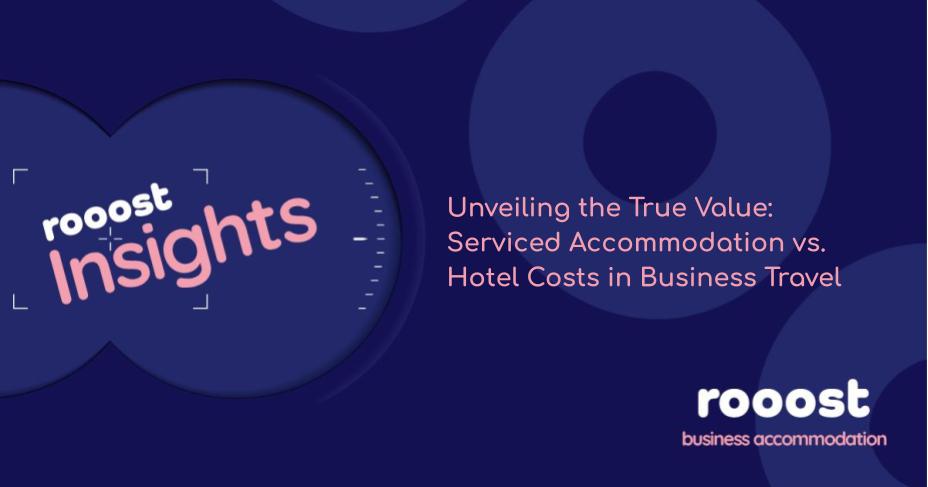Unveiling the True Value: Serviced Accommodation vs. Hotel Costs in Business Travel

In the dynamic landscape of business travel, where every decision counts, the choice between traditional hotels and serviced accommodations can significantly impact a company's bottom line. This article explores the nuanced realm of hotel costs versus serviced accommodation costs, unravelling the hidden benefits that extend beyond mere financial considerations. Dive into a comprehensive analysis that not only highlights the substantial cost savings but also underscores the transformative impact on productivity through the innovative 8-8-8 rule.
The Bottom Line: Breaking Down Costs
Understanding the true cost of accommodation involves more than comparing room rates. Traditional hotels often present a seemingly straightforward pricing structure, but additional expenses can quickly accumulate, including dining, laundry, and business centre services. Serviced accommodations, on the other hand, typically offer an all-inclusive package, reducing the risk of unforeseen expenses.
A. Room Rates
1. Traditional Hotels: Initial room rates may appear competitive, but add-ons can inflate the total cost significantly.
2. Serviced Accommodations: Transparent pricing structures often include utilities, Wi-Fi, and other amenities in the room rate, offering a clearer picture of the overall cost.
B. Additional Services
1. Traditional Hotels: Charges for services such as laundry, room service, and business facilities contribute to hidden costs.
2. Serviced Accommodations: Many services are included, contributing to a more predictable and budget-friendly stay.
The Productivity Paradigm: Introducing the 8-8-8 Rule
Beyond cost considerations, the 8-8-8 rule emerges as a groundbreaking strategy for enhancing productivity during business travel. Coined by Rooost, this rule focuses on optimising the three pillars of a traveller's day: work, relaxation, and sleep.
A. Work
Traditional Hotels: Limited workspace and potential distractions can impede the efficiency of business travellers.
Serviced Accommodations: Dedicated workspaces, high-speed internet, and ergonomic setups cater to the professional needs of guests, fostering a conducive work environment.
B. Relaxation
Traditional Hotels: Public spaces may lack the comfort and privacy needed for unwinding after a busy day.
Serviced Accommodations: Spacious living areas, fully equipped kitchens, and recreational facilities contribute to a relaxing atmosphere.
C. Sleep
Traditional Hotels: Noise, uncomfortable beds, and inconsistent sleep environments can disrupt the quality of rest.
Serviced Accommodations: Thoughtfully designed bedrooms, noise reduction measures, and personalised sleep environments promote restorative sleep.
Case Studies: Realising Tangible Benefits
To illustrate the tangible benefits of choosing serviced accommodations over traditional hotels, this section delves into real-world case studies. Examining diverse industries, we uncover how businesses have experienced cost savings and increased productivity through strategic accommodation choices.
A. Corporate Efficiency
1. How Company X Reduced Accommodation Expenses by 20%: A detailed analysis of how a multinational corporation achieved significant cost reductions by transitioning from hotels to serviced accommodations.
2. The 8-8-8 Rule in Action: Case studies showcasing how implementing the 8-8-8 rule positively influenced employee well-being and business outcomes.
The Ripple Effect: Employee Well-Being and Satisfaction
A. Addressing Burnout
1. Impact on Mental Health: The role of accommodation in mitigating travel-related stress and burnout, contributing to improved mental health among employees.
2. Satisfaction Surveys: Comparisons of employee satisfaction levels between traditional hotel stays and serviced accommodations, shedding light on the importance of comfort and well-being.
B. Retention and Recruitment
1. The Talent Magnet: How companies that prioritise employee well-being through thoughtful accommodation choices gain a competitive edge in talent acquisition and retention.
2. ROI on Employee Satisfaction: Exploring the correlation between satisfied, well-rested employees and increased productivity and innovation.
The Future of Business Accommodation: Navigating Trends
As the business travel landscape evolves, trends in accommodation preferences are emerging. This section explores the future trajectory of business accommodation, shedding light on the role of serviced accommodations in meeting evolving traveller expectations.
A. Hybrid Work Models
1. The Rise of Remote Work: How the surge in remote work has influenced business travel patterns and the demand for flexible, well-equipped accommodations.
2. Adaptation and Innovation: How serviced accommodations are adapting to the changing needs of business travellers, incorporating technological advancements and personalised services.
Conclusion
In the ever-evolving world of business travel, the choice between traditional hotels and serviced accommodations transcends mere budget considerations. It's a strategic decision that can impact employee well-being, satisfaction, and ultimately, the success of a business venture. By unravelling the intricate dynamics of hotel costs versus serviced accommodation costs and embracing innovative approaches like the 8-8-8 rule, businesses can unlock a new paradigm of efficiency, cost savings, and enhanced productivity. The future of business accommodation lies in choices that prioritise both the financial bottom line and the well-being of the mobile workforce.

 share
share